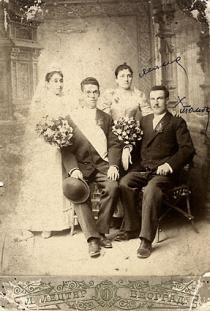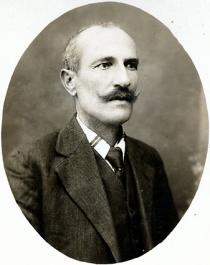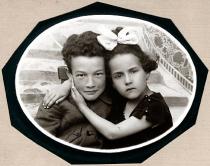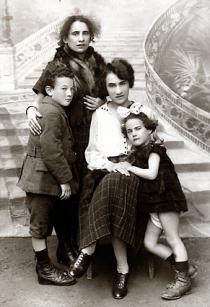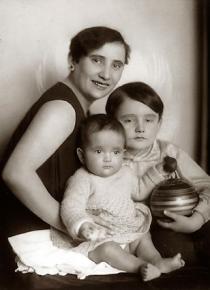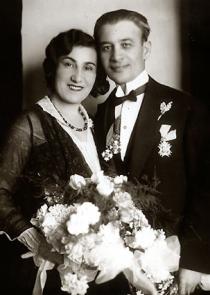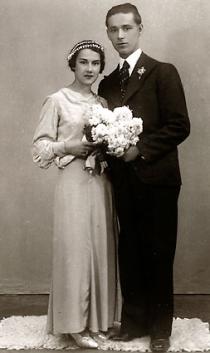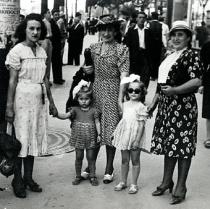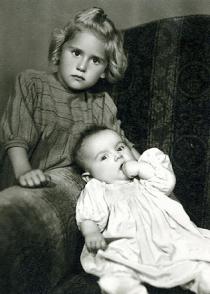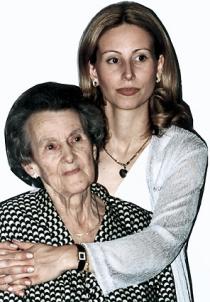Photo of my youngest brother and me, taken by my uncle Mihajlo in Obrenovac (1918).
My youngest brother, who was two and a half years older than me, finished secondary technical school, but like every young Belgradian he thought he needed to learn a trade as well. Father wanted him to work in the store, but he did not want to do that. He wanted to finish learning the typesetting trade and then work as a typographer, engraver, and typesetter. He worked for a man named Horovic, and then for [the newspapers] Vreme, Politika, and I do not know where else. When the Germans came to Belgrade, they captured him and sent him to slave labor until November, or December, when the whole group was taken to forced labor, either in Germany or Austria. Or else he was killed in Banjica or in a mobile gas chamber. We never found out. His wife and two kids had to register at Tasmajdan. It seems to me that this happened in November, when we were already deep into winter, and the kids were from two to three and a half years old. They confiscated their three-and-a-half-room apartment, and they locked them up in Sajmiste. What happened to them, only history knows.
My paternal uncle Mihajlo wanted to study art in Budapest. But he was young and he spent the money set aside for his studies without restraint and returned a photographer. He ended up in Obrenovac. He died during the war. Only one daughter and one son are still alive. He lives in Ub and she in Belgrade.

